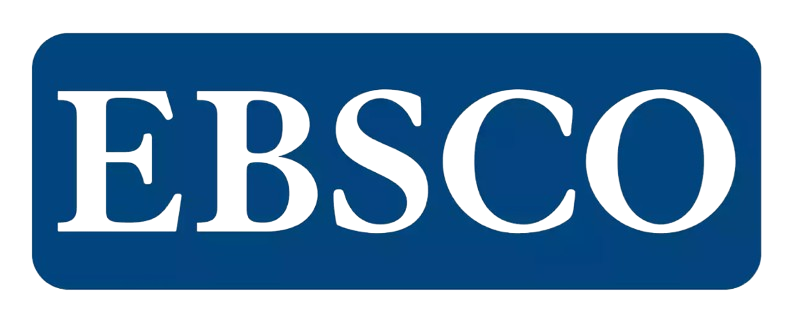The Implementation of the Chinese Ancient Civilization School-Based Curriculum: Insights from T Primary School
DOI:
https://doi.org/10.52751/cmujs.2025.v1.55k39g54Keywords:
Chinese ancient civilization, School-based curriculum, Curriculum implementation, Curriculum reformAbstract
This research examines the execution of the school-based curriculum on ancient Chinese culture in T primary schools in China, following the national curriculum reform launched by the Ministry of Education. This research assesses the curriculum through the lens of instructors and educational interns, focusing on cultural self-confidence and the preservation of traditional culture. This research used quantitative approaches to investigate instructors' and education internship students' assessments of the curriculum's goals, content, learning experiences, and evaluation procedures, using descriptive statistics and independent samples T-tests for data analysis. The findings underscore several positives, such as the curriculum's congruence with the school's pedagogical philosophy, the thoroughness of the material, and the variety of instructional approaches. Nonetheless, obstacles persist, especially regarding students' comprehension of curricular goals, the pertinence and difficulty of learning activities, and the systematic retention of learning results. The research revealed that while professors and internship students often provided comparable assessments, there is a need for enhanced communication of learning goals, more stimulating and intellectually demanding learning experiences, and effective digital feedback and result retention mechanisms. The research emphasizes the need to reconcile national curricular mandates with local adaptability by comparing these results to international examples from Finland, Singapore, and the United Kingdom, therefore assuring cultural pertinence and contemporary educational efficacy. This research enhances the worldwide discourse on cultural curriculum integration and offers pragmatic recommendations for refining the culture-focused school curriculum in China.
Downloads
References
Anyichie, A. C., Butler, D. L., Perry, N. E., & Nashon, S. M. (2023). Examining Classroom Contexts in Support of Culturally Diverse Learners' Engagement: An Integration of Self-Regulated Learning and Culturally Responsive Pedagogical Practices. Frontline Learning Research, 11(1), 1-39. Retrieved from https://doi.org/10.14786/flr.v11i1.1115
Attard, C., Berger, N., & Mackenzie, E. (2021). The positive influence of inquiry-based learning teacher professional learning and industry partnerships on student engagement with STEM. In Frontiers in Education (Vol. 6, p. 693221). Frontiers Media SA. Retrieved from
https://doi.org/10.3389/feduc.2021.693221
Belbase, S., Sharma, B., Pant, B. P., Khanal, B., Panthi, R. K., Kasemsukpipat, W.,& Al Farra, N. K. (2022). Philosophical foundations for curriculum decision: A reflective analysis. SN Social Sciences, 2(4), 39.Retrieved from https://doi.org/10.1007/s43545-022-00344-5
Cao, X. D., & Yang, B. L. (2021). Research on the development of school-based curriculum for Tujia ethnic culture primary school—taking Yinjiang Tujia and Miao Autonomous County in Guizhou Province as an example. Journal of Zunyi Normal University (05), 106-109 + 113. Retrieved from
Dayal, H. C. (2021). How teachers use formative assessment strategies during teaching:Evidence from the classroom. Australian Journal of Teacher Education (Online),46(7),1-21.Retrieved from
http://dx.doi.org/10.14221/ajte.2021v46n7.1
.Fong, C. J., Krou, M. R., Johnston-Ashton, K., Hoff, M. A., Lin, S., & Gonzales, C. (2021). LASSI's great adventure: A meta-analysis of the Learning and Study Strategies Inventory and academic outcomes. Educational Research Review, 34, 100407.Retrieved from
https://doi.org/10.1016/j.edurev.2021.100407
Fortus, D., & Touitou, I. (2021). Changes to students’motivation to learn science. Disciplinary and Interdisciplinary Science Education Research, 3(1), 1. Retrieved from
https://doi.org/10.1186/s43031-020-00029-0
Ghaith, G. M., & Awada, G. M. (2022). Cooperative Learning and Comparison of Language and Culture. In Cooperative Learning and World-Readiness Standards for Learning Languages: A Guide for Effective Practice (pp. 91-106). Cham: Springer International Publishing. Retrieved from
https://doi.org/10.1007/978-3-031-04590-5_7
Guardado, M., Light, J., Guardado, M., & Light, J. (2020). Evaluating the Plan and Lived Experience of the Curriculum: Completing the Circle. Curriculum Development in English for Academic Purposes: A Guide to Practice, 103-120. Retrieved from
https://doi.org/10.1007/978-3-030-47468-3_6
Guo, H. (2023). Development of English training courses for civil servants under the background of Hainan Free Trade Port construction. Academy (25), 84-86. Retrieved from
Li, J. (2022). A Study on the Problems and Countermeasures in the Educational Practice of Physical Education Majors from the Perspective of Interns.Master's thesis,Sichuan Normal University.
Li, L. L. (2023). Ordinary High Schools Leveraging University Resources for Education: Practical Experiences, Real Challenges, and Policy Directions—A Case Study of District A in Shanghai.Educational Science(04),39-46.
Li, J. (2023). Integrating Chinese traditional culture into college English teaching from the perspective of cultural self-confidence. Academic Journal of Humanities & Social Sciences, 6(3), 13-17.Retrieved from https://doi.org/10.25236/AJHSS.2023.060303
Li, X., Su, X., Pu, X., Xi, Y., Zhou, L., Xi, W., & Ma, Y. (2023). Research on the Cultivation Path of Cultural Self-confidence under the Perspective of the Strategy of Revitalizing the Country through Science and Education—Using the Chinese Language and Literature Major at Taizhou University as an Example. Adult and Higher Education, 5(20), 1-7.Retrieved from https://DOI: 10.23977/aduhe.2023.052001
Liu, C. L., & Feng, T. S. (2021). Principles and practices of school-based curriculum development of family culture in Zhedong Shuoxue and Hongru. Classroom teacher in primary and secondary schools (06),4-7+10.Retrieved from https://doi:10.3969/j.issn.2096-3742.2021.06.002
Maxwell, G. S. (2021). Defining and assessing desired learning outcomes. In Using Data to Improve Student Learning: Theory, Research and Practice (pp. 73-112). Cham: Springer International Publishing. Retrieved from
https://doi.org/10.1007/978-3-030-63539-8_3
Ministry of Education. (2022). Compulsory Education Curriculum Standards (2022 Edition). Ministry of Education website.
Ministry of Education of the People’Republic of China. (2001, June 8). Announcement on printing and distributing the outline of basic education curriculum reform (Trial).
http://www.moe.gov.cn/srcsite/ A26/jcj_kcjcgh/200106/t20010608_167343.html
Oo, C. Z., Alonzo, D., Asih, R., Pelobillo, G., Lim, R., San, N. M. H., & O’Neill, S. (2024). Implementing school-based assessment reforms to enhance student learning: a systematic review. Educational Assessment, Evaluation and Accountability,36(1),7-30. Retrieved from https://doi.org/10.1080/03054985.2020.1850436
Saher, A. S., Ali, A. M. J., Amani, D., & Najwan, F. (2022). Traditional Versus Authentic Assessments in Higher Education. Pegem Journal of Education and Instruction,12(1),283-291.Retrieved from
https://10.47750/pegegog.12.01.29
Sun, R. Y., & Meng, Z. G. (2024). Reform of English Teaching Theory Curriculum Evaluation System based on Teacher Professional Certification. Journal of Xingtai University (02),166-170. Retrieved from
http://dx.chinadoi.cn/10.3969/j.issn.1672-4658.2024.02.024
Van der Kleij, F. M., & Lipnevich, A. A. (2021). Student perceptions of assessment feedback: A critical scoping review and call for research. Educational assessment, evaluation and accountability, 33,345-373.Retrieved from https://doi.org/10.1007/s11092-020-09331-x
Wang, L. Y., Chen Victor, D. T., & Neo, W. L.(2019). Studying the enactment of school-based curriculum development (SBCD) in Singapore. Educational Research, 61(3), 337-355. Retrieved from
https://www.tandfonline.com/doi/full/10.1080/00131881.2019.1642120
Wang, X. X. (2023). Research on the Development and Practice of School-based Biology Curriculum on "Ecological Safety"in High Schools. Master's thesis, Shandong Normal University. Retrieved from
https://link-cnki-net-s.webvpn.ccsfu.edu.cn/doi/10.27280/d.cnki.gsdsu.2023.001563 doi:10.27280/d.cnki.gsdsu.2023.001563.
Walsh, T. (2023). Alignment and Coherence in the Context of Policy and Curriculum Development in Ireland: Tensions, Debates, and Future Directions. In Handbook of Curriculum Theory and Research (pp. 1-21). Cham: Springer International Publishing. Retrieved from
https://doi.org/10.1007/978-3-030-82976-6_10-1
Xie, F. L. (2022). Research on the Development of School-Based Geography Curriculum from the Perspective of Core Literacy. Middle School Geography Teaching Reference(12),13-15+19.Retrieved from
Xu, Q. (2024). Case study on the development of primary school labor-based curriculum from the perspective of core literacy. (master's thesis, Chengdu University). Master. Retrieved from
Xu, X. L. (2021). Strategies and Methods for studying travel curriculum development. Ezhou university journal (01), 70-72. The doi: 10.16732 / j.carol carroll nki jeu. 2021.01.024. Retrieved from
https://doi:10.16732/j.cnki.jeu.2021.01.024.













 LinkedIn
LinkedIn